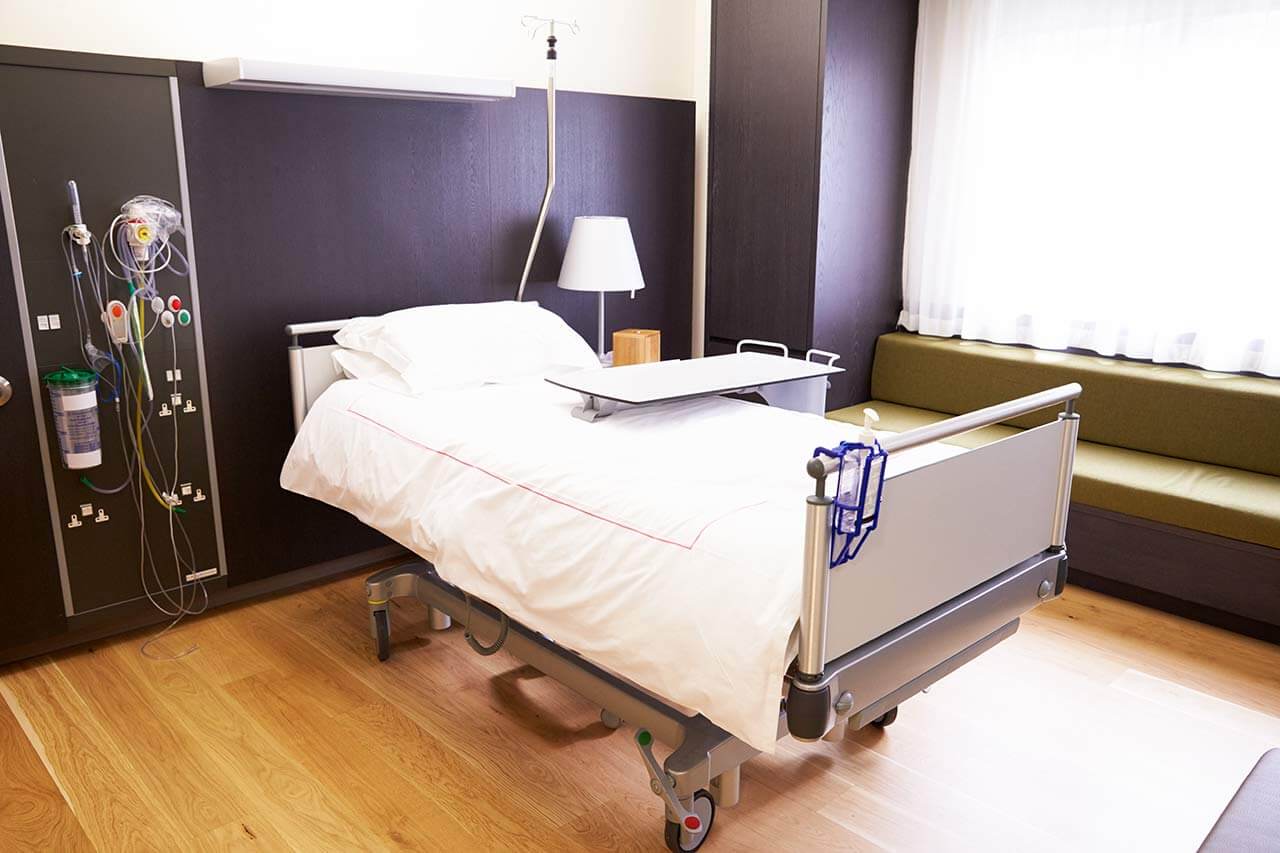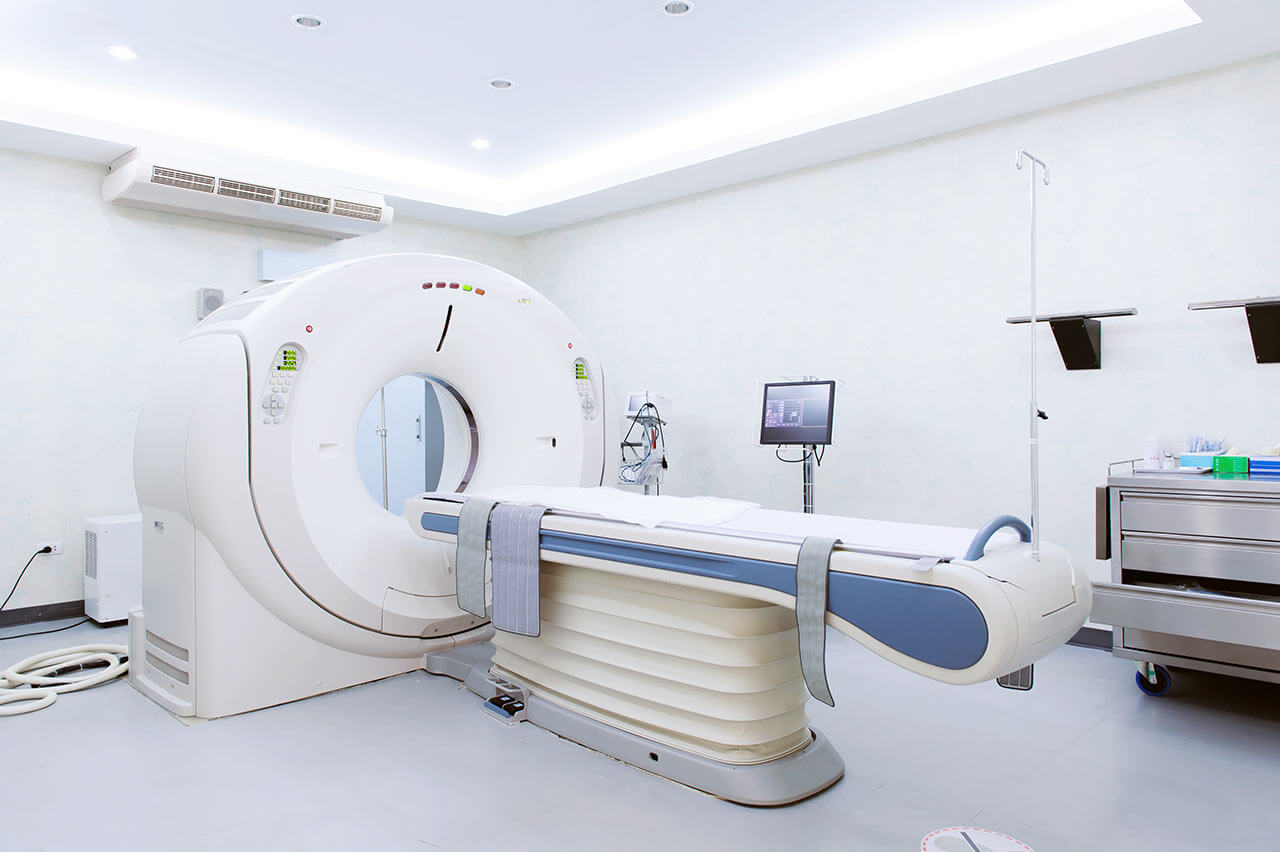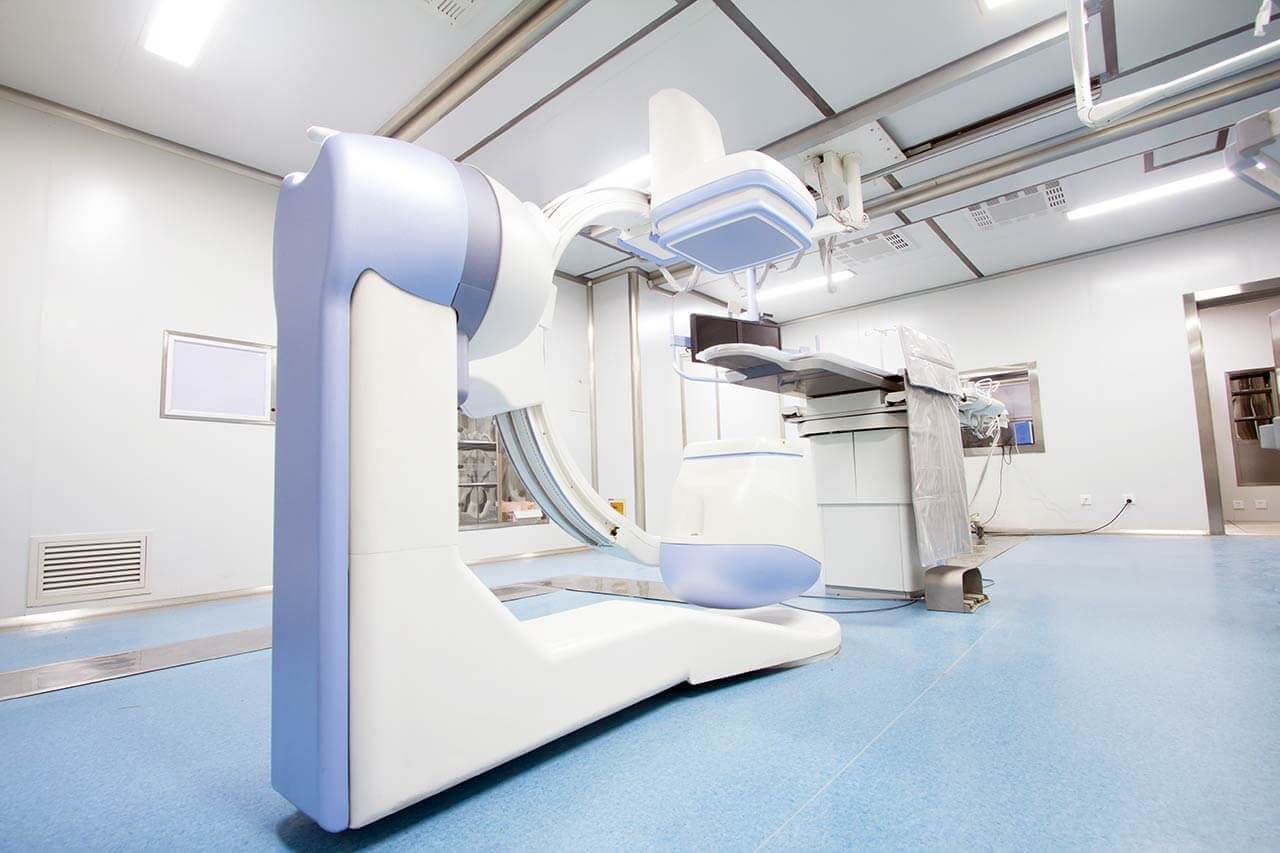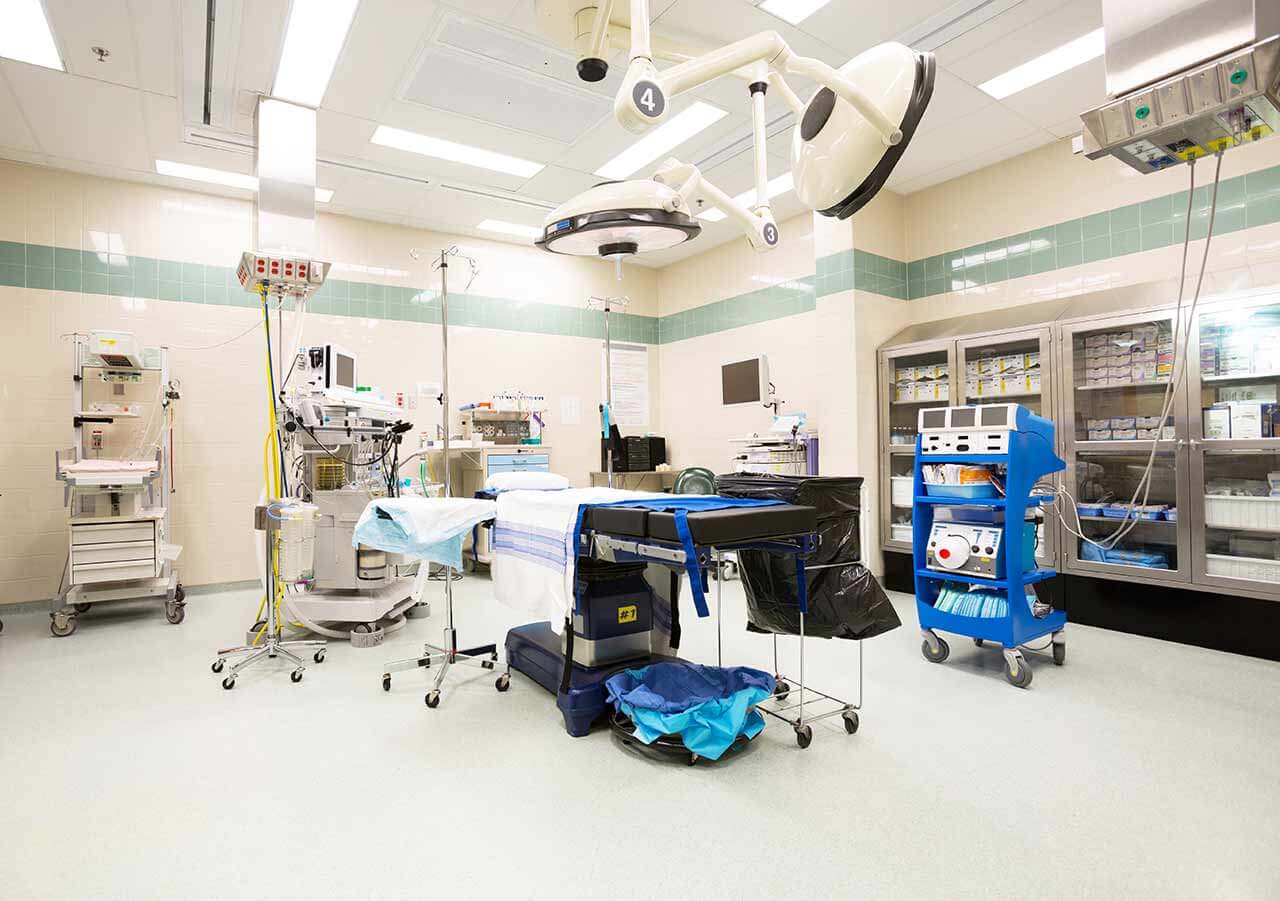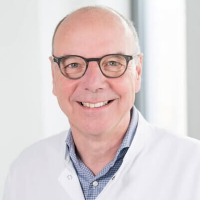
The program includes:
- Interview with doctor, medical history taking
- general clinical examination
- vascular system assessment
- extended blood test:
- thyroid function test (TSH, fT3, fT4)
- mineral metabolism analysis (Na, K, Ca, Mg)
- lipid metabolism (HDL/LDL, cholesterol,
triglycerides Lip(a), homocysteine) - indicators of blood coagulation (aPTT, PT, INR)
- metabolic status (uric acid, glucose)
- iron content (ferritin, iron)
- inflammatory parameters (CRP, ESR)
- immune status (protein electrophoresis)
- lung function test (spirometry)
- resting and exercise ECG
- color doppler echocardiography
- color doppler sonography of cerebral vessels
- CT angiography of coronary vessels (if clinically indicated, additional cost is 1000 €)
- fundus examination (in hypertension)
- interview and recommendations after examination
- written statement
Required documents
- Medical records (if availale)
Service
You may also book:
 BookingHealth Price from:
BookingHealth Price from:
About the department
According to the Focus magazine, the Department of Cardiology and Angiology at the Charite University Hospital Berlin is one of the best medical facilities in Germany for conservative and catheter-based treatment of heart disease!
The department performs prevention, diagnosis, and treatment of the full range of heart diseases, as well as pathologies of the arteries, veins, and lymphatic vessels. The department has modern cardiac catheterization laboratories, where all existing procedures for invasive diagnostics and angiography-guided interventional therapy of cardiac pathologies are performed. The key specialties of the department are the treatment of coronary artery disease, catheter therapy of valvular heart disease with special emphasis on the innovative TAVI and MitraClip procedures, and interventional therapy of atrial septal defects. It should be noted that the department's specialists have exceptional expertise in transcatheter aortic valve implantation (TAVI), with more than 3,000 such procedures successfully performed here since 2009. The department also has a Chest Pain Unit that provides emergency medical care to patients with acute coronary syndrome, which in many cases is a precursor to myocardial infarction. Of particular interest to the department's angiology team is the interventional treatment of vascular stenosis and obstruction of various localizations using balloon dilatation and stenting. Most treatment procedures are performed in the department on an outpatient basis. The department is headed by Prof. Dr. med. Gerhard Hindricks.
One of the main focuses of the cardiology team is the treatment of structural heart disease: valvular heart disease, ventricular septal defect, patent foramen ovale, left atrial appendage defect, and malformations of the great vessels of the heart. In this context, priority is given to the treatment of aortic, mitral, and tricuspid stenosis and insufficiency. Treatment tactics for suspected heart valve pathology are determined jointly by cardiologists and cardiac surgeons: specialists take into account the degree of stenosis or insufficiency of the affected valve, the severity of symptoms, the patient's age, and his general condition. Cardiologists most often treat aortic stenosis and insufficiency with transcatheter aortic valve implantation (TAVI). This is the most advanced, minimally invasive and highly effective procedure in which the physician does not make a single incision in the patient's chest, but performs therapeutic manipulations through a catheter inserted into a blood vessel. The department is a holder of the German Cardiac Society (DKG) quality certificate for TAVI procedures.
The cardiac catheterization laboratory is also frequently used for catheter-based treatments for mitral valve stenosis and regurgitation. Physicians offer treatment using the latest cardiac technologies: interventional procedures with the MitraClip and Pascal systems are performed here. In addition, catheter-based interventions for structural heart disease include the closure of atrial septal defects, patent foramen ovale, and left atrial appendage.
The department also has impressive clinical experience in the catheter-based treatment of coronary heart disease (CHD), the main symptoms of which are shortness of breath and angina (chest pain). This cardiopathology is caused by the deposition of atherosclerotic plaques on the walls of the coronary arteries, which leads to the deterioration of the blood supply to the myocardium. Until recently, the only effective method of treating CHD was aortocoronary bypass grafting, a traumatic operation involving the opening of the sternum and the use of a heart-lung machine. Today, the specialists of the medical facility have the possibility to treat this disease with balloon angioplasty followed by the placement of a standard stent or a drug-eluting stent. In complex cases, the cardiologists of the medical institution perform catheter-based treatment with rotational atherectomy. Optical coherence tomography (OCT) and intravascular ultrasound (IVUS) are used to plan and perform both balloon angioplasty and rotational atherectomy. This ensures high precision and safety of the treatment procedures.
The healthcare facility also provides medical care for patients with angiologic diseases. The central place in the work of doctors of this profile is the diagnosis of vascular stenosis by duplex sonography and angiography, as well as its treatment by percutaneous transluminal angioplasty, with stenting if necessary. Most patients present with peripheral arterial occlusive disease of the lower extremities (less frequently the upper extremities), renal artery stenosis, and carotid artery stenosis. If the results of the preliminary diagnostic examination reveal an acute arterial occlusion, lysis therapy is immediately performed, which involves the dissolution of the blood clot by local administration of drugs.
The department's key clinical activities include the following:
- Diagnostic services
- Cardiology
- Functional heart diagnostics
- Echocardiography (heart ultrasound)
- Stress echocardiography
- Electrocardiography
- Ergometry and spiroergometry
- Long-term electrocardiography
- 24-hour blood ambulatory pressure monitoring
- 12-channel 24-hour ECG monitoring
- Pulmonary function tests
- Spirometry
- Body plethysmography
- Lung diffusion capacity measurement
- Electrophysiological studies to record tachycardia and bradycardia, as well as to identify the causes of syncope
- Diagnostic cardiac catheterization
- Fractional flow reserve measurement
- Optical coherence tomography
- Intravascular ultrasound
- Coronary flow reserve measurement
- Intracoronary acetylcholine provocation testing
- Functional heart diagnostics
- Angiology
- Duplex sonography
- Angiography
- Cardiology
- Therapeutic services
- Cardiology
- Catheter-based interventional procedures
- Catheter-based treatment of structural heart disease
- Transcatheter aortic valve implantation (TAVI) for aortic stenosis and regurgitation
- Catheter-based procedures for the implantation of MitraClip and Pascal systems for mitral stenosis and regurgitation
- Catheter-based closure of atrial septal defect
- Catheter-based closure of patent foramen ovale
- Catheter-based closure of left atrial appendage
- Catheter-based treatment of ischemic heart disease
- Balloon angioplasty with standard or drug-eluting stent placement
- Rotational atherectomy
- Catheter-based treatment of arrhythmias
- Radiofrequency ablation
- Pulsed field ablation
- Pacemaker and defibrillator implantation
- Catheter-based treatment of heart failure
- Cardiac resynchronization therapy
- Cardiac contractility modulation
- Emergency cardiac care for acute coronary syndrome
- Catheter-based treatment of structural heart disease
- Catheter-based interventional procedures
- Angiology
- Percutaneous transluminal angioplasty with or without stenting
- Lysis therapy
- Cardiology
- Other medical services
Curriculum vitae
Higher Education, Postgraduate Training, and Professional Career
- 1982 - 1989 Medical studies, Westphalian Wilhelm University of Muenster, Germany.
- 1989 Doctorate, Westphalian Wilhelm University of Muenster, Germany.
- 1989 - 1998 Research Fellow and Assistant Physician, Department of Cardiology and Angiology, University Hospital Muenster.
- 1997 Board certification in Internal Medicine.
- 1999 Board certification in Cardiology.
- 1999 Co-Director, Electrophysiology Unit, Heart Center, University Hospital Leipzig.
- 2005 Professorship for Medicine, University of Leipzig.
- 2007 Head Physician, Department of Electrophysiology, Heart Center, University Hospital Leipzig.
- 2017 - 2023 Head Physician, Heart Center, University Hospital Leipzig.
- Since 03.2023 Head Physician, Department of Cardiology and Angiology, Charite University Hospital Berlin.
Clinical Interests
- Electrophysiological studies.
- Catheter ablation.
- Electrical cardiac pacing.
- Treatment of atrial fibrillation.
- Treatment of ventricular tachycardia.
Review Activities
- Journal of Cardiovascular Electrophysiology.
- Lancet Circulation.
- American Journal of Cardiology.
- Pace Journal of the American College of Cardiology.
- European Heart Journal.
- Europace.
- Deutsche Medizinische Wochenschrift.
- Zeitschrift für Kardiologie.
Memberships in Professional Societies
- German Cardiac Society (DKG).
- European Society of Cardiology (ESC).
- European Heart Rhythm Association (EHRA).
- Heart Rhythm Society (HRS).
Фото врача: (c) Charité – Universitätsmedizin Berlin
About hospital
According to the reputable Focus magazine, the Charite University Hospital Berlin ranks 1st among the best healthcare facilities in Germany!
The hospital is one of the largest and leading university medical complexes in Europe, and also consistently holds leading positions in the international medical arena. The Charite operates on the basis of the Faculty of Medicine of the Free University of Berlin and the Humboldt University of Berlin. Patients are offered modern diagnostics and treatment with the very latest methods, many of which were developed by professors and scientists of the medical complex. More than half of all German Nobel Prize winners in medicine and physiology, such as Emil von Behring, Robert Koch, and Paul Ehrlich, studied and worked at the Charite University Hospital Berlin. The medical complex includes more than 100 specialized departments and institutes, which helps to ensure that patients receive care in all existing medical specialties. The hospital has exceptional experience in treating complex clinical cases.
Each year, the hospital treats more than 137,800 inpatients and more than 787,700 outpatients. The hospital has a bed capacity of 3,293 beds. A huge medical team consisting of 5,670 scientists and doctors and more than 6,000 nurses work for the benefit of the patients. The main task of all specialists of the medical facility is to restore the patient's health or save his life in critical cases. The hospital has a friendly atmosphere where every patient feels care, respect and empathy.
The Charite University Hospital Berlin is generously funded by the German government, which is why it offers patients the latest generation of excellent equipment and comfortable infrastructure. The Charite medical complex is equipped with da Vinci robotic surgery systems, laser technologies, equipment for endovascular catheter-based interventions, neuronavigation devices, intraoperative monitoring systems, equipment for proton therapy available only in the most advanced medical centers in the world, and many other technologies. All these resources, combined with the experience and professional skills of the hospital's doctors, are the key to providing the most effective and safe treatment in accordance with the highest international medical standards.
The hospital is recognized with a huge number of quality certificates, including DIN EN ISO 9001:2015, certificates from the German Cancer Society (DKG), the German Society for General and Visceral Surgery (DGAV), the German Society for Thoracic Surgery (DGT), the German Hernia Society (DHG), and the ERAS Society.
The Charite University Hospital Berlin is a benchmark in the European healthcare system. Patients therefore receive impeccable medical service, quality care, and personalized service that puts the patient and their individual needs first.
Photo: (с) depositphotos
Accommodation in hospital
Patients rooms
The patients of the Charite University Hospital Berlin live in comfortable rooms made of modern design. Each room is equipped with an ensuite bathroom with a toilet and a shower. The standard room furnishing includes an automatically adjustable bed, a bedside table, a wardrobe for storing clothes, a table and chairs for receiving visitors, and a TV. If desired, Wi-Fi access can be provided. The hospital also offers enhanced-comfort rooms.
Meals and Menus
The patient and his accompanying person have a daily choice of three menus. If for any reason, you do not like the food, you will be offered an individual menu. Please inform the medical staff about your dietary preferences before the treatment.
Further details
Standard rooms include:
Religion
Religious services are available upon request.
Accompanying person
During the inpatient program, an accompanying person may stay with you in a patient room or at the hotel of your choice.
Hotel
During the outpatient program, you can live at a hotel of your choice. Managers will help you to choose the most suitable options.
The hospital offers a full range of laboratory tests (general, hormonal, tests for infections, antibodies, tumor markers, etc.), genetic tests, various modifications of ultrasound scans, CT scans, MRI and PET / CT, angiography, myelography, biopsy and other examinations. Treatment with medications, endoscopic and robotic operations, stereotaxic interventions is carried out here, modern types of radiation therapy are also used. The hospital offers patients all the necessary therapeutic techniques.
- Proton therapy
- CyberKnife treatment
- Hyperthermic intraperitoneal chemotherapy (HIPEC)
- PSMA therapy with Lutetium-177
- Joint replacement in adults and children
These are oncological diseases, benign neoplasms of the brain and spinal cord, heart valve defects, diabetes mellitus and its complications, joint diseases and other pathologies.
- Neurosurgery
- Oncology
- Plastic and reconstructive surgery
- Interventional radiology
- Proton therapy (Proton Therapy Center BerlinProtonen)
The medical team includes more than 4,225 highly qualified scientists and doctors.
